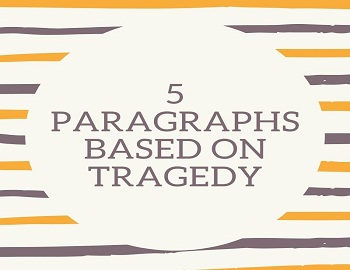Table of Contents
Phrases and Idioms Verb Phrases:
Phrases and Idioms:
Every language has a large number of Phrases and Idioms which are peculiar to itself. In fact, the word Idiom means an expression peculiar to a language. To write idiomatically means to write forcefully, clearly, and naturally. As an idiom is fixed by long usage and practice, its order of words need not be changed.
Verb Phrases:
Some Verbs when followed by different prepositions or adverbs change their meanings. For instance, to come of and to come off do not mean the same thing. The first expression means to be born, while the second means to take place. Study the following examples and enrich your expression-
| Act upon (follow) | Had you acted upon my advice, you would have been successful. |
| Act up to (comply) | I have acted up to my promise. |
| Bear away or Bear off (win) | He stood first in the class and bore away (or bore off) the first prize. |
| Bear out (confirm the statement) | You will bear me out when I say that I am an honest man. |
| Bear with (tolerate) | I cannot bear with such a rude behaviour. |
| Break down (fail) | His health broke down. |
| Break into (enter forcibly) | A thief broke into our house at night. |
| Break open (open by force) | I had to break open the box in order to get the necessary things. |
| Break out (appear suddenly) | Fire broke out in the hut. or Cholera broke out in the city. |
| Break up (come to an end, disperse) | The police have broken up the mob. or Our school breaks up at 4 P.M. in winter. |
| Bring about (cause to happen) | The new Principal brought about many changes in the school. |
| Bring forth (produce) | A good tree brings forth good fruit. |
| Bring up (nourish) | He has left an orphan and was brought up by his grandmother. |
| Bring up (raise for discussion) | The matter was brought up in Parliament. |
| Bring round (persuade, to recover) | With great difficulty, I brought him round to my views. The patient was brought round by the doctor. |
| Call on a person (pay a brief visit to) | I called on my officer yesterday. |
| Call at a place | I called at your house yesterday, but you were not present. |
| Call up | I cannot call up past events. |
| Call in (send for) | As the patient was seriously ill, a doctor was called in. |
| Call one names (abuse) | To call names is the way of uncivilized people. |
| Carry out (execute) | Carry out the orders of your elders. |
| Carry on (manage) | He is carrying on a business in gold and silver. Please carry on with your work. |
| Carry off (kill) | The plague carried off many a young man. |
| Carry off (win) | He is an able boy; last year he carried off the first prize in English. |
| Come about (happen) | I do not know how all this came about. |
| Come across (meet) | I came across my friend on the way. |
| Come off (take place) | Our prize distribution comes off on next Monday. |
| Come off (detached) | The plaster of the wall has come off. |
| Come round (agree) | I hope he will come round to my views. |
| Come round (recover) | It is hoped that the patient will come round soon. |
| Come up to (approach, be equal to) | The pass percentage of our class comes up to eighty. Your essay does not come up to our standard. |
| Come to (amount to) | How much does your income come to? |
| Come on (move forward) | Come on and let us do our best. |
| Come down | Rice has come down. |
| Come by | How did you come by this watch? |
| Cut down (reduce) | You shall have to cut down on your expenses if you want to save something. |
| Cut off (die) | My friend was cut off in the prime of life. |
| Cut off (disconnect) | During the war, our country was completely cut off. |
| Cut short (lessen) | As we have no more time, please cut short your statement. |
| Deal in (sell) | His father deals in stationery. |
| Deal with | It is hard to deal with a naughty boy. |
| Deal at | Which bank do you deal at? |
| Deal out | Deal out the cards, please. |
| Do with (concern) | I have nothing to do with this man. |
| Do with (finish) | I have done with the novel that you gave me yesterday. |
| Do away with (kill, destroy) | The robbers did away with the rich man. If you want to succeed do away with your bad habits. |
| Draw one out | The judge drew the thief out of this point. |
| Draw near | Our examination is drawing near. |
| Draw up (prepare) | He is drawing up the programme of the meeting. |
| Fall to (begin to eat) | The marriage party was requested to fall to. |
| Fall out (quarrel) | Mohan and Sohan fell out with each other yesterday. |
| Fall in with (meet by chance) | On the way, I fell in with a thief. |
| Fall in with (agree) | I had to fall in with his views. |
| Fall short of (less than) | The money that you gave me has fallen short of my requirements. |
| Fall in (stand in a line) | The captain ordered the soldiers to fall in. |
| Get on (proceed) | How are you getting on with your studies? |
| Get down (descend) | Get down at Ambala and change for Kalka. |
| Get up | I usually get up at 5 A.M. |
| Get through (pass) | He got through the examination. |
| Get the better of (surpass) | Mohan is sure to get the better of his brother in running. |
| Get in (come in) | Get in please. |
| Give away (distribute) | The President gave away the prizes. |
| Give way | The roof gave way under heavy rainfall. |
| Give up (abandon, leave) | He has given up drinking. |
| Give off (emit) | The rose gives off a very sweet smell. |
| Given to (addicted to) | Mohan is given to telling lies. |
| Give oneself up (surrender) | He gave himself up to the public without any hesitation. |
| Go out (extinguish) | The lamp has gone out. |
| Go in for (purchase) | Will you go in for a new pen? |
| Go on (continue) | Go on with your work, please. |
| Go through (examine) | Have you gone through my essay? |
| Hold good | Your argument does not hold good in this case. |
| Hold on (have patience) | He held on bravely to his post and was successful in the end. |
| Held up (stop) | Our car was held up near the railway station. |
| Hold over (postpone, put off) | The decision of my case was held over to the next week. |
| Keep up (maintain) | We must keep up courage even in misfortunes. |
| Keep on (continue) | You should keep on trying. |
| Keep away (remain absent) | You should not keep away from school. |
| Lay by (save) | Lay by something for the rainy day. |
| Lay out (grow) | Shah Jahan lay out gardens in Kashmir. |
| Lay up | He is laying up money for the future. |
| Let in (allow to enter) | Will you let me in? |
| Let loose (release) | He let loose his dog upon a beggar. |
| Look after (take care of) | There is nobody to look after the child. |
| Look up (find out) | Let us look up the meaning of this word in the dictionary. |
| Look upon (regard) | I always look upon her as my sister. |
| Look down upon (hate) | The rich should not look down upon the poor. |
| Look into (investigate) | Has the police looked into the case of theft? |
| Look out for (search) | Beasts look out for their prey at night. |
| Look over (examine) | Have you looked over our answer books? |
| Make out (understand) | I am unable to make out what he has written in the letter. |
| Make up | Please make up your deficiency in English. |
| Make over (transfer) | He has made over the charge to me. |
| Make for | When he got your message, he made for the shop. |
| Pass away (die) | A great leader passed away yesterday. |
| Pass through (undergo) | We had to pass through many difficulties to win independence. |
| Pass for (taken for) | Many rogues in brown dress pass for sadhus. |
| Put off | He put me off with a lame excuse. or Do not put off till tomorrow what you can do today. |
| Put on (wear) | After taking bath he put on his new clothes. |
| Put out (extinguish) | Put out the lamp when you have finished your work. |
| Put out (confuse) | Why are you so much put out today? |
| Run through (waste) | He has run through his father’s wealth in a month’s time. |
| Run through (glance over) | I have just run through your application. |
| Run through (thrust) | The dacoit ran his sword through the heart of the rich man. |
| Run down (decline in health) | His health has run down because of heavy work. |
| Run down (speak ill of) | He ran me down before my friends. |
| Run after (hanker after) | The people of the West run after worldly things. |
| Run over (trample) | A child was run over by a car on the roadside. |
| See off (see one depart) | I went to the bus stand to see off my friend. |
| See through (detect) | It was not easy to see through his trick. |
| Set about or Set to (begin) | He set about (or to) his work and finished it in five hours. |
| Set in (begin) | The rainy season has set in. |
| Set up (establish) | He has set up a cloth shop. |
| Set out (start) | We will set out on our journey tomorrow. |
| Set off (start) | He set off for New Delhi yesterday. |
| Stand by (support) | You should stand by your friends in need. |
| Stand on one’s legs (be independent) | Those who stand on their legs make progress in the world. |
| Take after (resemble) | Daughters usually take after their mothers. |
| Take down (write) | Please take down what I dictate. |
| To be taken in (to be deceived) | I was taken in by his sweet words. |
| Take over (receive) | He took over the charge of Headnastership. |
| Take heart (feel encouraged) | If you want to succeed, take heart and work hard. |
| Take to task (reprove) | The headmaster took to task those students who came late. |
| Take in hand (undertake) | I will take this work in hand next week. |
| Take advantage of (avail oneself unfairly of) | You have taken advantage of my weakness. |
| Take care of | Please take care of the child in my absence. |
| Turn in (go to bed) | Let us turn in, it is eleven o’clock. |
| Turn out (expel, dismiss) | The master has turned out his servant. |
| Turn out (produce) | This mill turns out ten thousand yards of cloth every week. |
| Turn out (prove) | He turned out to be a perfect gentleman. |
| Turn up (come, appear) | The teacher turned up late in the school. |
| Turn down (reject) | The magistrate turned down his request. |
| Turn a deaf ear to (disregard) | The headmaster turned a deaf ear to my request. |
| Turn tail (run away) | Many tribesmen turned tail on seeing the Indian Army. |
| Turn one’s back upon (refuse to help) | In difficulties, his brother turned his back upon him. |









Comments (No)